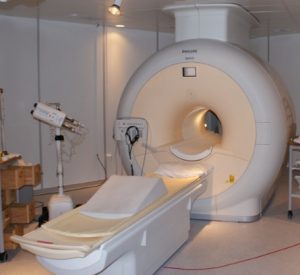Sudden neck pain is something that is actually quite common amongst many; as a matter of fact, two out of three people will experience neck pain at some point in their lives. While the pain is often not due to neck problems or any serious disease, its exact cause is still not clear. This type of neck pain is commonly referred to as “nonspecific neck pain.” Most of these attacks are probably brought by bad posture or minor sprains. Good thing though is that in most cases, full recovery is achieved. The general advice is: keep your neck active. Painkillers can be quite helpful until pain ceases. For most people, neck pain is something temporary that fades with time. However, for some cases, the pain becomes (persistent) chronic, a problem that often requires further treatment.
Understanding Your Neck
The neck, known as the cervical spine, is made up of vertebrae that starts in the upper torso and ends at the bottom of the skull. It is this bony vertebra together with the muscles and ligaments (akin to thick rubber bands) that provides the spine some stability. The muscles allow for motion and support. the cervical spine supports the head’s weight and provides it a significant amount of motion. Since the neck isn’t that protected, compared to the rest of the spine, it is left vulnerable to disorders and injuries that can cause a lot of pain, and which may restrict motion. Nonetheless, neck pain for most people is something that fades with time. However, there are some who may require diagnosis and specialized treatment for symptom relief.
What’s Neck / Cervical Pain?
The neck is a complex yet amazing structure. It’s able to support a head weighing 15+ pounds while moving in various directions. Shock between bones is absorbed by cervical discs found in the neck. It is worth noting that there’s no other part of the spine with such a freedom of movement. However, this combination of mobility and complexity leaves the neck vulnerable to injury and pain. Any injury, inflammation, or abnormalities can also cause neck stiffness or pain.
Causes of Neck Pain
Most Common Causes: Sprains and Strains
When it comes to neck pain, the most common causes – sprains and strains – generally heal quite fast. A Strain is when a tendon or muscle is irritated by overextension or overuse. It can also happen when a ligament is irritated by overextension or overuse. Some of the common causes of neck sprains and strains include:
- Sports injuries
- Sleeping in the wrong position
- Whiplash
- Poor posture
- Accidents and Injuries
- Holding the head at an unusual angle or position for a prolonged period
Chronic Neck Pain Causes
Cervical spine pain is considered chronic if it stays for more than three months. These problems often stem from problems in the neck either with a disc or facet joint. Some of the common causes include:
- Cervical osteoarthritis
- Cervical degenerative disc disease
- Cervical foraminal stenosis
- Cervical spinal stenosis coupled with myelopathy
- Cervical herniated disc
Other Causes Of Chronic Neck pain
While not known to cause chronic or acute neck pain that often, the other causes may include:
- Myofascial pain
- Emotional stress
- Spinal tumor
- Infection
- Ankylosing spondylitis
- Fibromyalgia
- Congenital abnormalities
- Heart attack
Neck Pain Range of Symptoms
Cervical pain can feel like:
- Stabbing or sharp pain at one spot
- Inhibited motion due to a stiff neck
- Tenderness or soreness in a particular area
- A sharp pain that radiates to the head or down to the fingers, arms, or shoulders
In other cases, the symptoms associated with neck pain can prove to be more problematic like:
- Weakness, numbness, or tingling that radiates through the fingers, arms, or shoulders
- Problems coordinating, walking, or balancing
- Loss of bowel or bladder control
- Trouble lifting or gripping objects
Neck Pain Diagnosis
A doctor will do a physical examination, and that includes taking your entire medical history. It is vital that you let your doctor know everything there is to know about your symptoms. Also, make sure that you let him/her know about all over-the-counter (OTC) and prescriptions supplements and medications that you are taking. While it seems unrelated, you should also consider letting your doctor know about any accidents or injuries you have had.
Diagnostic results often determine neck pain treatment. Apart from a thorough physical exam and a run through your medical history, your doctor may also require you to go through more tests and imaging studies to help him/her determine the cause of pain. These tests and studies may include:
- CT scan
- X-ray
- MRI scan
- Myelogram
- A bone scan
- A spinal tap, or lumbar puncture
- Electrodiagnostic testing
Other tests may include somatosensory-evoked potentials for likely spinal cord problems or specialized laboratory tests for other diseases.
Most physicians use diagnostic testing to confirm the most likely cause of the pain based on the info they obtain during physical examination and going through patient history. Sometimes, depending on the complaints made, the cause of pain is never diagnosed with complete certainty. The interesting though is that most of the more serious and significant problems are often easier and more straightforward to diagnose.
When to See a Doctor
While cervical spine pain normally vanishes on its own, there are times when a serious underlying problem like meningitis, HIV, cancer, spinal cord injury, or a number of other infections may be at work. If these symptoms persist for more than seven days, consider consulting with your doctor.
You are advised to seek immediate medical attention if you experience the following symptoms:
- A lump in your neck
- Severe and sudden neck pain with no apparent cause
- A headache
- Chills or Fever
- Swollen glands
- Vomiting
- Nausea
- Radiating leg or arm pain
- Problems with coordination or balance
- Weakness, numbness or tingling in legs or arms
- Trouble breathing or swallowing
- Unintended weight loss
- Loss of bladder or bowel control
When severe chronic neck pain is as a result of major trauma, such as falling off a ladder or a car accident, it should be considered a medical emergency. This is vital to lower the chances of paralysis. As such, the patient needs to be immobilized by a trained medical professional before being transported to an emergency care center.
Neck Pain Treatment Options
Depending on your results, your doc could refer you to a neck pain specialist. Neck pain treatment options may include:
- Pain medication
- Physical, stretching, and exercise therapy
- Heat and ice therapy
- A neck collar
- Muscle relaxants
- Corticosteroid injections
- Antibiotics, in the event you have an infection
- Traction
- Surgery
- Hospital treatment if the problem is caused by something like a heart attack or meningitis
Other options include:
Always make sure that the professional you are seeing is licensed to use these methods.
Easing Neck Pain at Home
If you are suffering from neck stiffness or minor neck pain, take the following steps to relieve the stress:
- Apply some ice on the affected area for a couple of days. If the problem persists, apply heat on the area using a hot compress, heating pad, or taking a shower.
- Take over-the-counter pain relievers like acetaminophen or ibuprofen
- Refrain from doing activities, like sports and heavy lifting that may aggravate the symptom and resume to your normal activities slowly as symptoms ease.
- Do some neck exercises every day. Stretch your head in slow up-and-down and side-to-side motions
- Work on your posture
- Avoid holding the phone between your shoulder and neck
- Change positions often. Don’t sit or stand in a single position for a long time
- Have a gentle neck massage done.
- Get and use a neck pillow when sleeping
Do not use a collar or neck brace with your physician’s approval. If not used correctly, these braces could worsen your symptoms.







